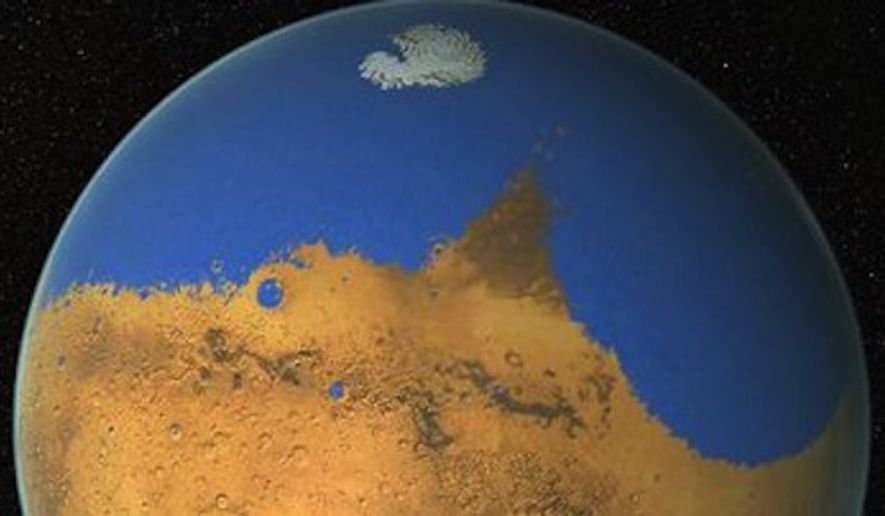Space, the final frontier for academia? This week, the Library of Congress has staged a symposium on astrobiology, and one with a big title: “Astrobiology and the Religious Imagination: Reexamining Notions of Creation, Humanity, Selfhood, and the Cosmos.” For the uninitiated, astrobiology is a multi-disciplinary field which deals in extraterrestrial matters, asking “How does life begin and evolve? Is there life beyond Earth and, if so, how can we detect it? What is the future of life on Earth and in the universe?”
So says an official description from the NASA Astrobiology Program, which was founded in 1998.
The Library’s big event convenes “seven leading scholars from the humanities and the sciences for a series of conversations on the impact of recent scientific discoveries on religious beliefs about the origins and future of life. Scholars with expertise in a range of religious traditions, including Christianity, Judaism, Islam and Buddhism will participate, in addition to a planetary scientist and a planetary biologist.”
Among the schools represented: Dartmouth College plus Boston, Cornell, Notre Dame, Michigan and George Washington universities. The astrobiology program itself is active: Two more “dialogues” are planned at the Library in May and August. A previous astrobiology symposium six months ago included a talk by astronomer Seth Shostak, director of the SETI Institute, titled “Current approaches to finding life beyond Earth, and what happens when we do.”
But it’s complicated. Some question the ongoing symposium. In September, a coalition of researchers and advocates seeking government “disclosure” about the existence of life beyond Earth have made their case with an open rebuttal letter to the organizers, and the Library itself - citing them for omitting “neglected and unacknowleged evidence.”
The group, which includes a former U.S. astronaut and a for Canadian defense minister, write: “The discovery, presence and public revelation of sentient extraterrestrial life and the vehicles that appear to manifest this presence is the greatest story in the history of humanity. All of the available documentation indisputably suggests the government of the United States, is in fact, withholding this information from its citizens and the citizens of the world.”
Find information and a link to the 12-page letter here:
Meanwhile, business is brisk elsewhere too. NASA’s brand new Astrobiology Institute now seeks a director with “experience participating in, and collaborating with, diverse research communities; and experience leading or managing large, interdisciplinary research programs or projects.” It is a big job, with a handsome salary offer ranging up to $168,700 a year, according to USAJobs, a compendium of federal employment.
• Jennifer Harper can be reached at jharper@washingtontimes.com.




Please read our comment policy before commenting.